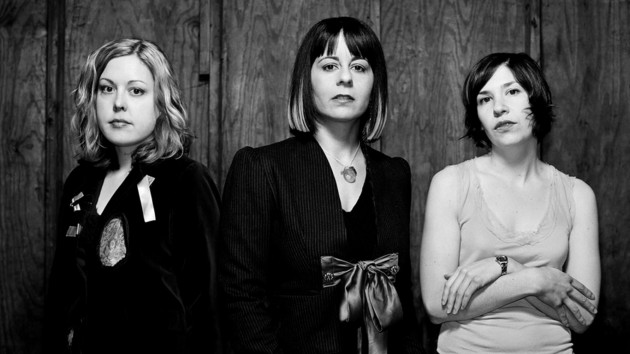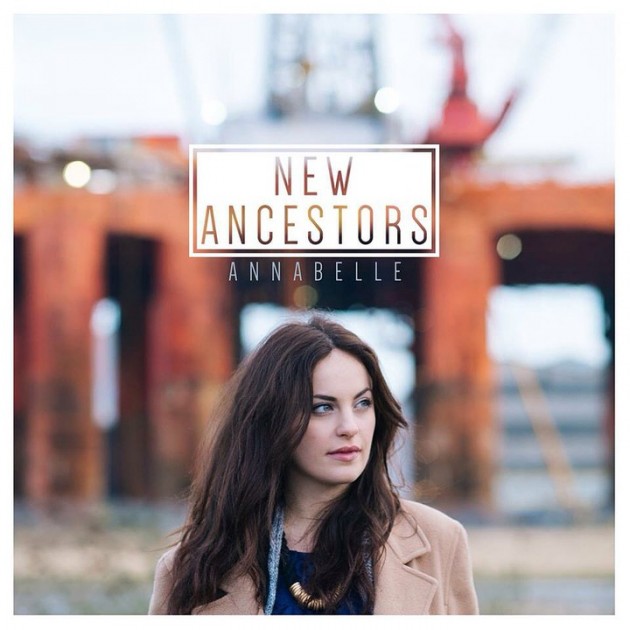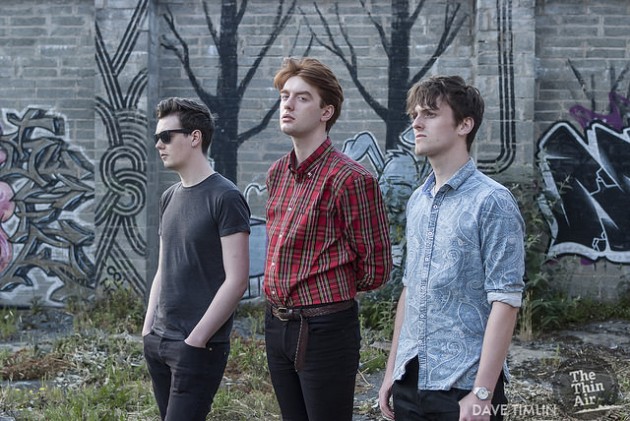Ahead of their Dublin show at Vicar Street on March 26, Brian Coney talks to Janet Weiss, drummer with the recently-reunited, impossibly influential Sleater-Kinney about getting back together, rediscovering the magic of writing and refusing to be ever consigned to the “girl band ghetto”.
Hi Janet. Before touching on the reunion itself, in what ways do you think No Cities to Love – your first record in a decade – is a continuation, musically or thematically, from The Woods?
I think that with so much time between The Woods and the new record, it’s not really a direct response to it to the extent that it would have been if we had worked on it directly following that tour. We were pretty locked into a “write, record, tour” cycle, which was part of the reason why we took a break. Looking back, I think that we felt after The Woods it would have been a pretty tough record to follow up. So taking a break allowed for a re-set, creatively, and there was less pressure in a “We’ve got to top The Woods!” sort of thing. We really just wanted to make one of our best record – that was pretty much the goal.
I know a lot bands tend to say that their most recent album is their “best”, and I suppose that’s something that comes with just living in the moment, but do you think No Cities To Love is your most accomplished record to date?
Well, I think it stands up to the other records. I think most people relate records to the time period that it came out, how it integrates into their lives and what it meant to them at that time. But I do think as far as “accomplishment” goes, it definitely stands up to our body of work.
The time between The Woods and NCTL you all had different projects on the go, you in Quasi, Wild Flag, Carrie with Portlandia, etc. Do you think it was almost a necessary break, in order to get other things out of your system, so to speak?
Yeah, definitely. I think if you sort of define yourself in one particular field, it can be stifling in a way, and you feel like, “Hey, maybe I’m capable of other things as well,” so you want to go out there and explore and live and try different things. Corin had a kid and Carrie started a whole different career. I think it’s just a part of growing as people and not feeling the band is a constraint. We want the band to feel like somewhere where we can be free and very expressive. I think that cycle I was talking about, of recurrently writing, recording and touring just got to be too constrictive for us.
Which is never good, of course – it happens to a lot of great bands. In a different interview, Corin said that the “2.0” of the band is all about “breaking the rules”. I don’t know if you can speak for her, but do you agree with that and, if so, what are the rules and how are you going to break them?
Well, I definitely feel that we’ve always had that mindset. We hadn’t followed any rulebook, in so far as being in a band goes – we’ve always just sort of done things our own way. At this point, we’re older and we feel more empowered than ever than have the band represnt us more as people. Like, yesterday we spoke at a school for troubled kids about trying to incorporate music into their lives and community. It’s not just music nowadays – it’s about being together, being good to each other and allowing each other the freedom to live the other parts of our lives. So, I think we’ve always wanted to break certain rules, especially about how people see woman in society – we’ve always done that and we continue to do that, in an even more vocal way.
Yeah, you’ve always had that going on and it seems to be stronger than ever. Nowadays, how would you personally encourage younger girls to pick up a guitar or pair of drumsticks and getting involved in rock music?
I think we sort of try to give example of a situation that is healthy and can be successful. I think you really have to have a thick skin sometimes and block out what people might say sometimes – about being put in “girl band” ghetto, like some sort of separate thing only to be compared to each other. We’re not allowed to be quite as much as guy bands are allowed to be – like there even is a difference. I think it’s really just a tenacity, in really honing your skills as someone who can push forward and not be discouraged.
In terms of the actual songwriting process for No Cities To Love, how was it getting back together in a room and starting into the whole composition side of things again?
I think for each record there’s been a different process that’s worked best and that process depends on a lot of different songs, like where we’re writing the songs, who’s got the most time to work, whether we’ve been tour and we’ve been improvised more. It really depends. On this record, because we came out of a period of not playing together the idea of like, improvising to write songs – like how we wrote a lot of The Woods – it didn’t quiet work. Our chemistry didn’t click in the same way, and it takes years to develop that kind of chemisty, a lot of which you develop on stage. So we sort of reverted to how Dig Me Out was written – when I first joined band – where Corin and Carrie would come up with the ideas and the three of us would work on them together. It was really a case of those two reconnecting and honing their guitar playing again and sort of pushing beyond, toying with different sounds and pedals and new ways of integrating their guitar playing. Most of the songs started like that.
From a personal perspective – including your other projects including Quasi and Wild Flag – how do you think you’ve developed as a drummer in the period since The Woods?
The people I play with lead me down a certain path, you know? Then I try to get inside their head. This record was so much tighter and explosive, in a very compact way. We really trimmed a lot of the fat – it’s not a loose record. It’s very potent and powerful and explosive. So I had to figure out how to do that in a short period of time. The songs are short – they don’t really stretch out much – so it was definitely an exploration of how to be more powerful, really. Quasi is a different beast, completely. Our last record was like a sprawling double record – very open, dreamy and expansive, which couldn’t really be any more opposite to No Cities To Love. So, for me, I love that juxtaposition, to be more than one thing.
Absolutely – an outlet for more things. As you know, a lot of bands go away and come back to find themselves quite revered. The Pixies, Slint, Dinosaur Jr., the list goes on and on. Why do you think that is and do you think it’s happening to Sleater-Kinney?
Yeah, I think the idea of nostalgia is very powerful. People are attached to certain things and can be very nostalgic about certain times in their lives that were different or better – when they were younger or whatever. You kind of forget all the bad things when you look back. One of the positive sides of being human is that you can reflect on the good things in the past, and I just think music is so dear to people that they can’t help but feel something – even if they weren’t around – they can still get that feeling of, “This was something good and I want to be a part of it.” That said, we’re not as concerned with that as a band as we are with the present. We tried to make a record that couldn’t be ignored – to force people to look at us today and not just look back for a nostalgic trip. We’re really interested in doing something that’s current.
In a recent interview you said that Sleater-Kinney “have a lot left to do”, which is really great to hear. Do you think at this point that there’s a bigger picture in mind – a permanent reunion, more albums etc. – or are you just focusing on the moment?
Yeah, just focusing on the moment. I couldn’t promise anything. I think that’s part of what we learned taking that time off. A lot happened to us in those years and I personally lost a really great friend, and I think I just realised not to get too ahead of myself, to really make the moment mean something, rather than getting caught up in planning for the future, because you don’t know what it will hold. People tell you that when you’re young and you don’t believe it, but when you get older you see it to be very true. You start losing people around you and realise, “Hey! My days are numbered here – just like every living thing – so let’s just live in the moment and make it worthwhile.”
I couldn’t agree more. Finally, in terms of playing over the next few months, do you relish the idea of going out on stage night after night?
Yeah. We’re three shows in now and I look forward to having that fluidity that we develop after playing together on stage for at least a few weeks. You just get better at it and the telepathy gets more honed – it becomes something that you can’t explain, of having everything clicking. I think we’re all looking forward to that and, so far, it’s been a really great time. More people are listening to us in the UK and Ireland than ever and we’re looking forward to coming over and playing some show, for sure.
No Cities To Love is out now on Sub Pop
Sleater-Kinney play Dublin’s Vicar Street on March 26. Go here to buy tickets.






